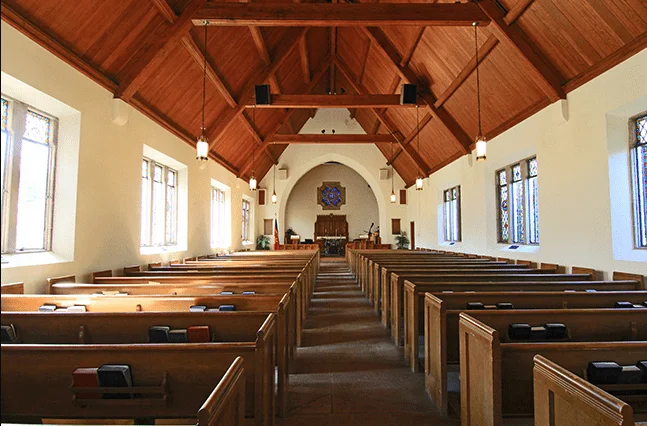What better way to worship in church than from your comfort zone with other worshippers. D.J. Soto, a pastor based in Fredericksburg, Virginia, have espoused the benefits of VR and considered it a step forward in human self-realization.

Many religious groups now offer interactive digital venues to augment conventional services, but unique in that it offers spirituality in an immersive 3D setting via virtual reality (VR) technology.
Garret Bernal and his family were reportedly absent from a recent Sunday service due to their quarantine for COVID-19 exposure, according to the NZ Herald. So he put on a virtual reality headset and attempted to pray in the metaverse.
As a pastor’s representative walked him and others through computer-generated imagery of Biblical passages that came to life, he was quickly transported to a three-dimensional virtual environment of pastures, cliffs, and rivers. Bernal, who belongs to the Church of Jesus Christ of Latter-day Saints, said:
“I couldn’t have had such an immersive church experience sitting in my pew. I was able to see the scriptures in a new way.”
D.J. Soto, a pastor in Fredericksburg, Virginia, has espoused the benefits of virtual reality and considers it a step forward in human self-realization. According to him, the metaverse is the future of churchgoing since “it reaches those who can’t physically go to church” owing to COVID-19 or other factors.
Soto told Cointelegraph that “conversations about technology and spirituality need to coexist,” and that “conversations about technology and spirituality need to coexist.”
“We have people who attend due to COVID-19, or for lack of accessibility to their physical church. We are a Web3 church, a first-of-its-kind, that will lead Christianity into the brave world of cryptocurrency, DAOs, blockchain and other next-generation technologies. Conversations about technology and spirituality need to coexist. We are living in the best of times to experience innovation like this, and we are looking forward to the journey ahead.”
About the VR Church
According to Soto, the VR church is wholly centred on the metaverse and aspires to create loving spiritual communities throughout the virtual realm.
According to the Herald, attendance was low throughout the first year, and Soto regularly found himself speaking to a small group of people, the most of whom were atheists and agnostics who were more interested in discussing religion than in believing in God. However, according to the paper, his group has grown to roughly 200 members.
Reverend Jeremy Nickel, a Unitarian Universalist pastor who lives in Colorado and proclaims himself a VR evangelist, is mentioned in the study.
When he founded SacredVR in 2017, he wanted to create a community and “move away from the brick and mortar.” The group’s membership did not grow from a few dozens to hundreds of persons until the COVID-19 pandemic.
